

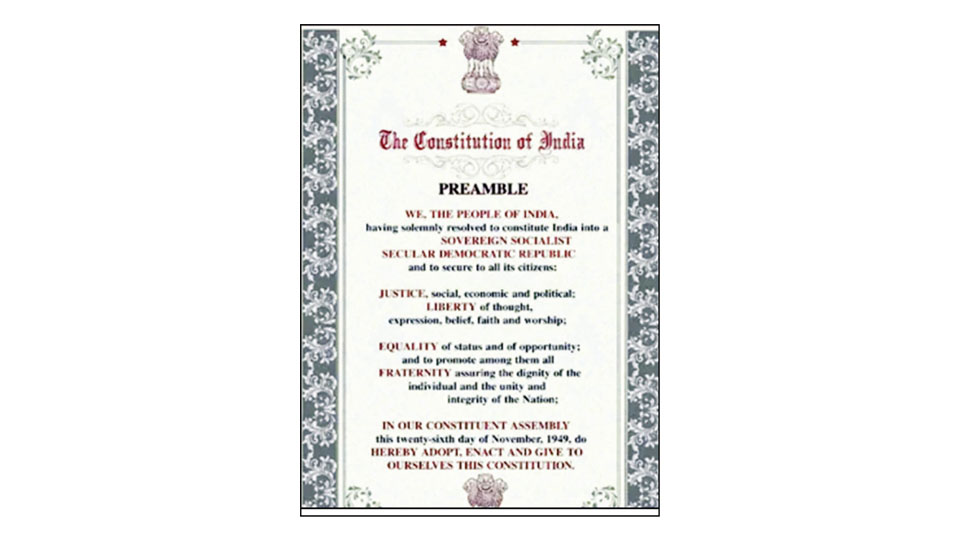
The Supreme Court has rejected three petitions seeking to delete the words 'secular' and 'socialist' from the Preamble of the Constitution of India. The Court stated that the power to amend the Constitution extends to the Preamble and that the words were inserted in 1976 during a national emergency. The Court also clarified that the terms 'secular' and 'socialist' do not restrict economic policies and reflect the State's commitment to equality and welfare. The petitions were filed by former BJP leader Subramanian Swamy, advocate Ashwini Upadhyay, and Balram Singh.
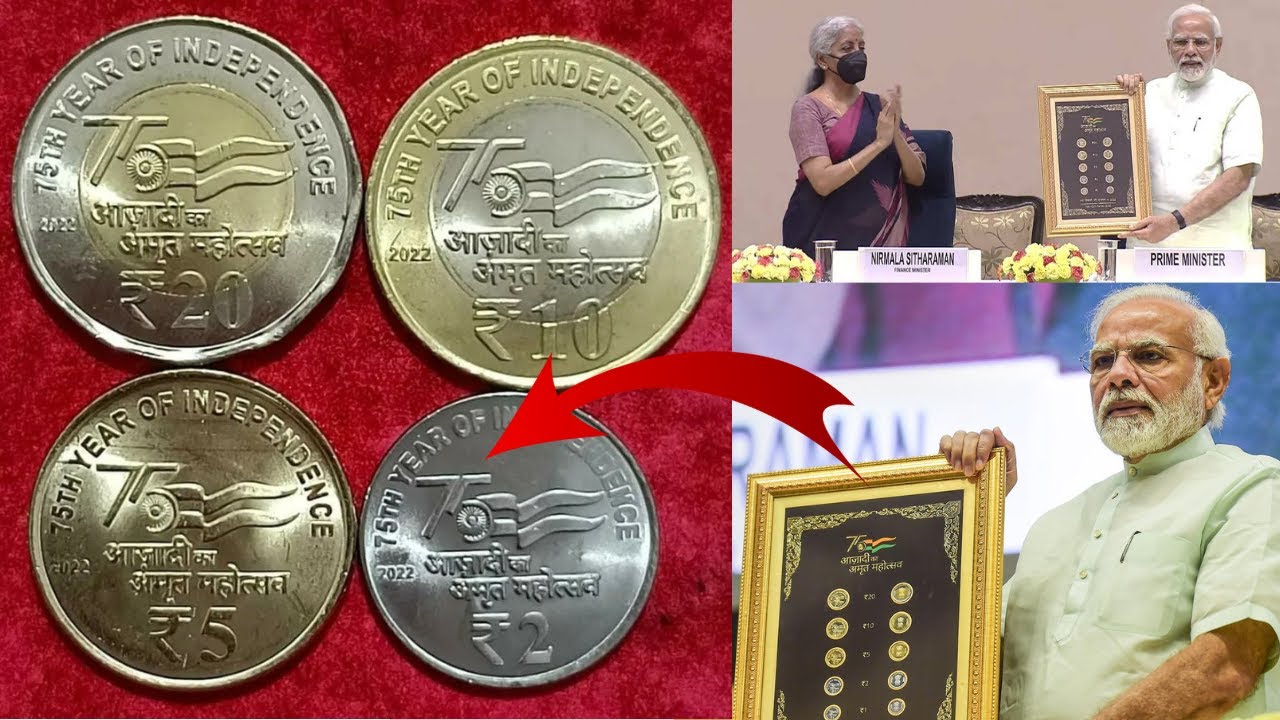
On Constitution Day, both the Prime Minister and President emphasized the significance of the Constitution in shaping India's progress and development. At the PMO and Supreme Court celebrations, officials and leaders reflected on the document's role in achieving social justice and inclusivity. The release of a special coin and stamp serves as a commemoration of the Constitution's 75 years of impact.
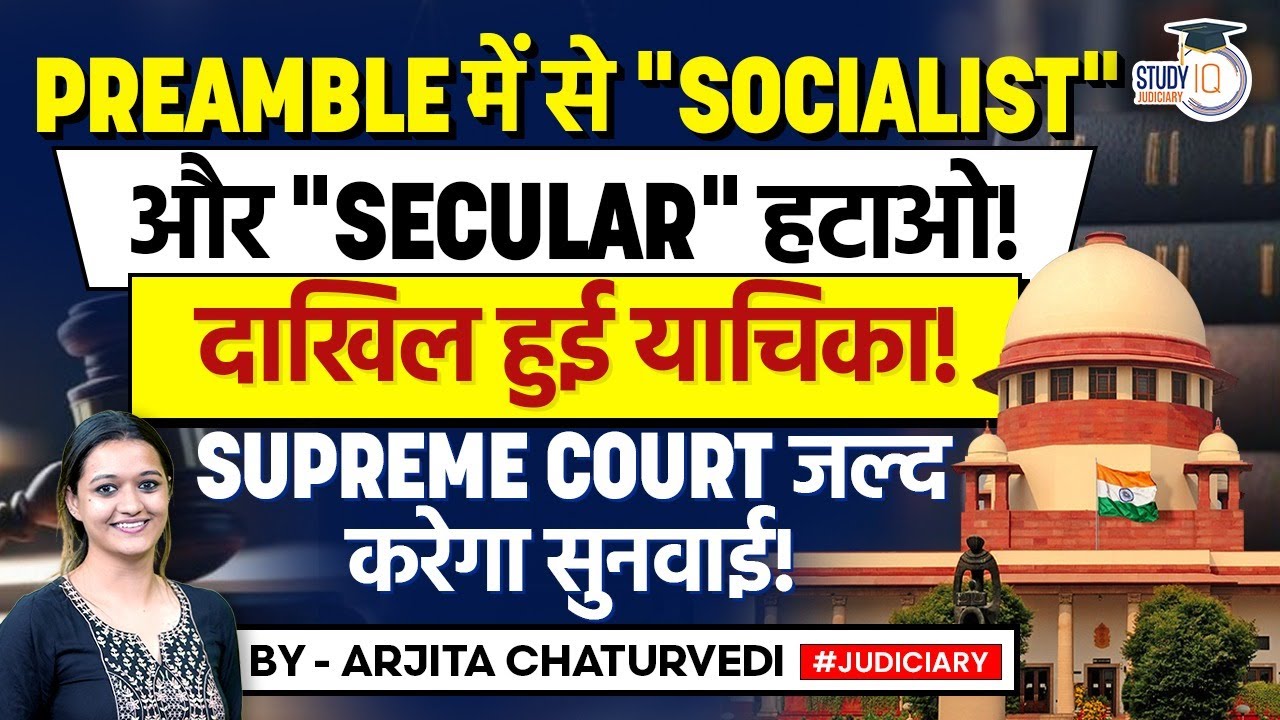
The Supreme Court of India has rejected three petitions requesting the removal of the words 'secular' and 'socialist' from the Indian Constitution's Preamble. The Bench, headed by Chief Justice of India Sanjiv Khanna, stated that the power of Parliament to amend the Constitution extends to the Preamble as well. The court also clarified that the terms 'secular' and 'socialist' are integral to the Constitution and do not restrict the government's economic policies or private initiatives.
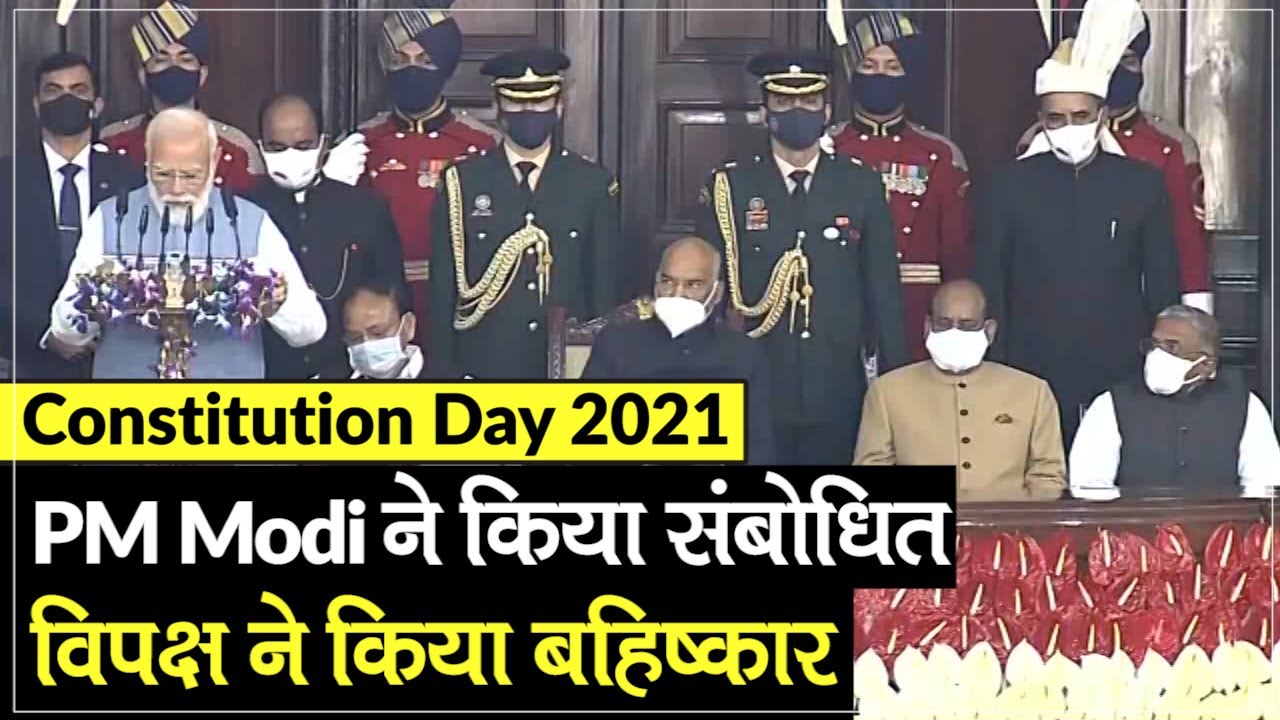
As India celebrates the 75th anniversary of its Constitution, the political scene is abuzz with discussions on its teachings and values. The Congress has requested two days in Parliament to discuss the document, while President Droupadi Murmu stressed its significance in a joint sitting. The Supreme Court also upheld the validity of ‘secular’ and ‘socialist’ in the Preamble, with Vice President Jagdeep Dhankhar emphasizing the need for constructive dialogue to uphold the sanctity of our democratic institutions and promote informed citizenship.
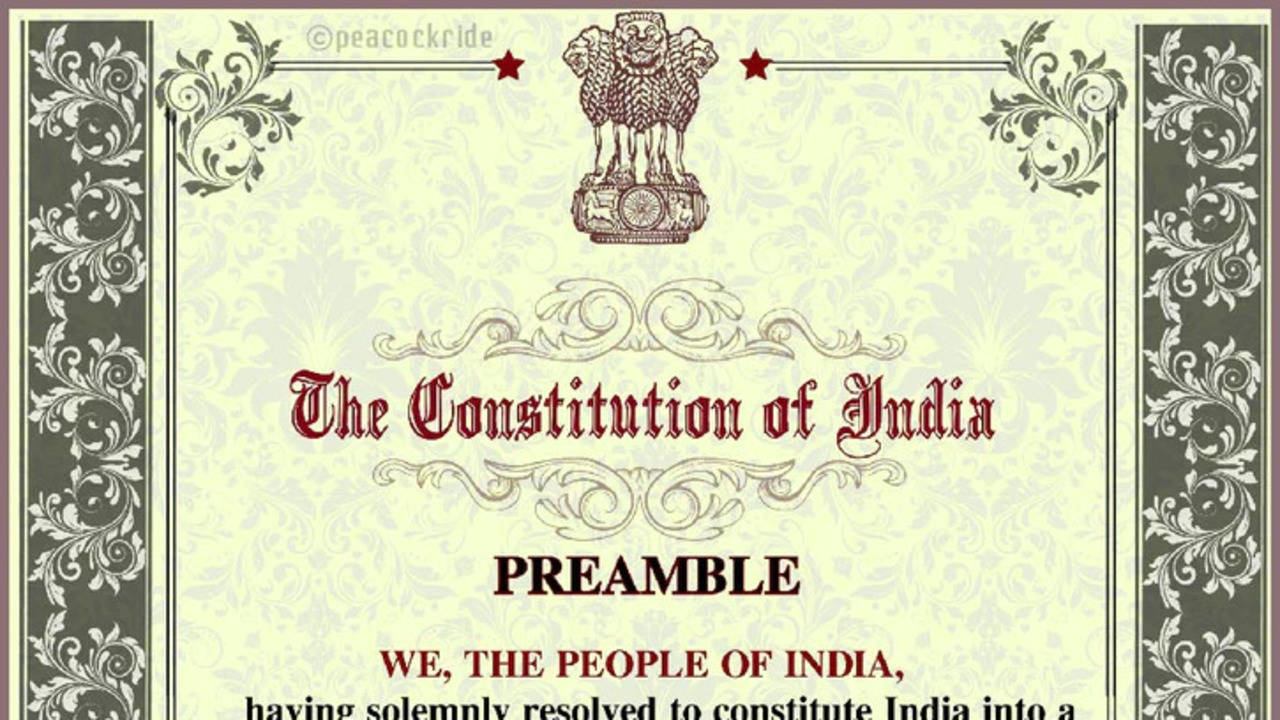
The Supreme Court has dismissed a set of petitions demanding the elimination of "secular", "socialist" and "integrity" from the Preamble of the Indian Constitution. The court stated that after 44 years of their introduction in 1976 by the Indira Gandhi government, there is no genuine reason for challenging the Constitutional amendment. The petitioners, including Subramanian Swamy, argued that these words violate the basic structure of the Constitution, but the apex court disagreed and emphasized that parliament holds the power to amend it. The court also pointed out the delay in filing the petition and clarified that parliament's power to amend the Constitution is not constrained by the date of its adoption.
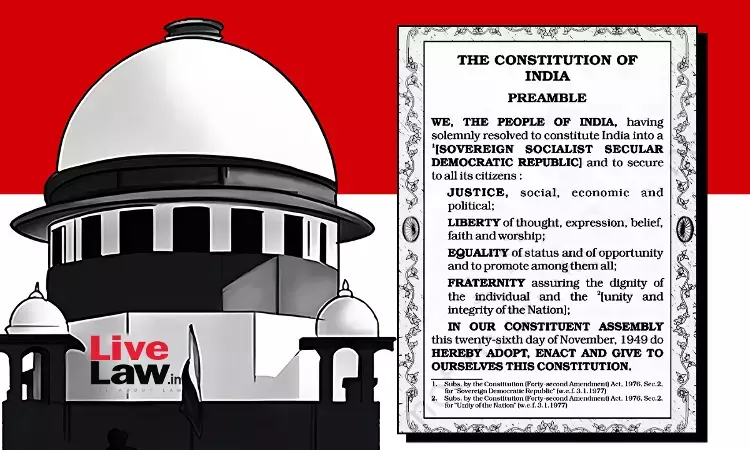
The Indian Supreme Court has rejected multiple petitions challenging the addition of the words "Socialist" and "Secular" in the Preamble of the Constitution. The Court, led by Chief Justice Sanjiv Khanna, stated that the Parliament has the power to amend the Constitution, including the Preamble. The Court also noted that secularism is a core feature of the Constitution and has been upheld in previous judgements. The petitions argue that the concept of "Dharma" and the failure of the Communist theory of state make the insertion inappropriate and that Indian citizens should not be compelled to be secular.
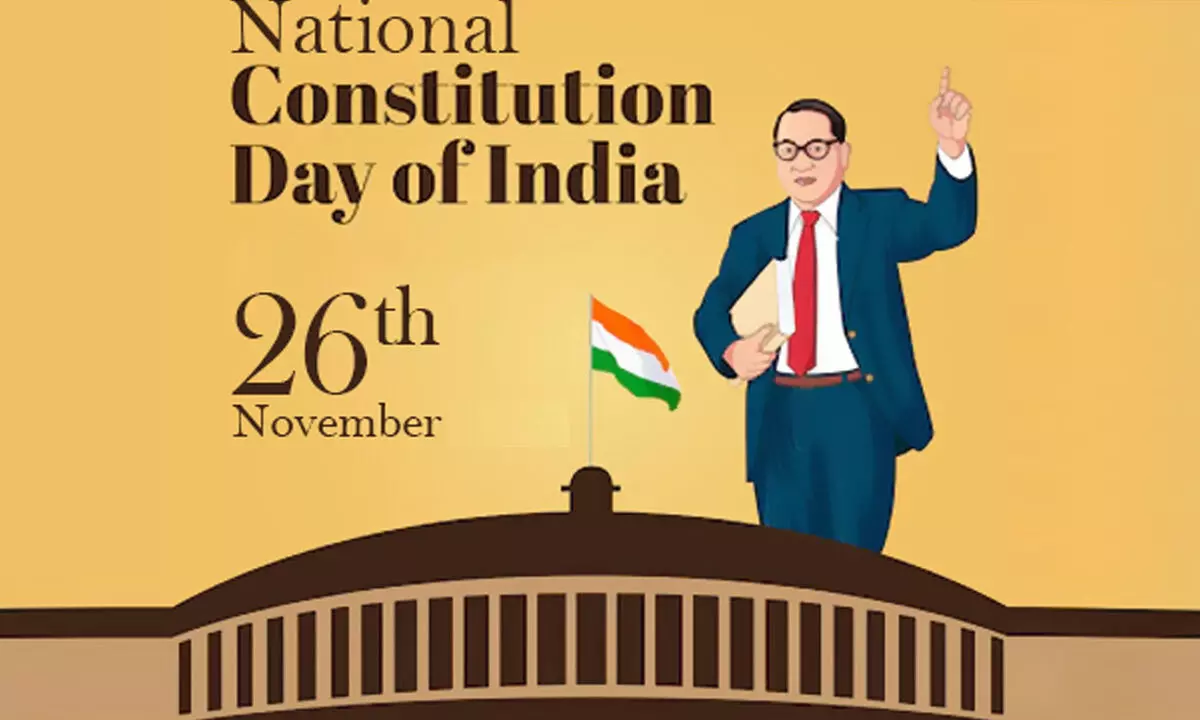
As India commemorates the 75th anniversary of its Constitution, President Droupadi Murmu will address a joint sitting of Parliament and release translated versions of the Constitution in Sanskrit and Maithili. Prime Minister Narendra Modi and other dignitaries will also attend the celebrations, together with the unveiling of a commemorative coin and stamp. The event coincides with the launch of a new website dedicated to engaging citizens with the legacy of the Constitution through interactive activities, and mass readings of the Preamble will be held nationwide. This is a significant day for India, as it honours the historic document that laid the foundation for its democracy.
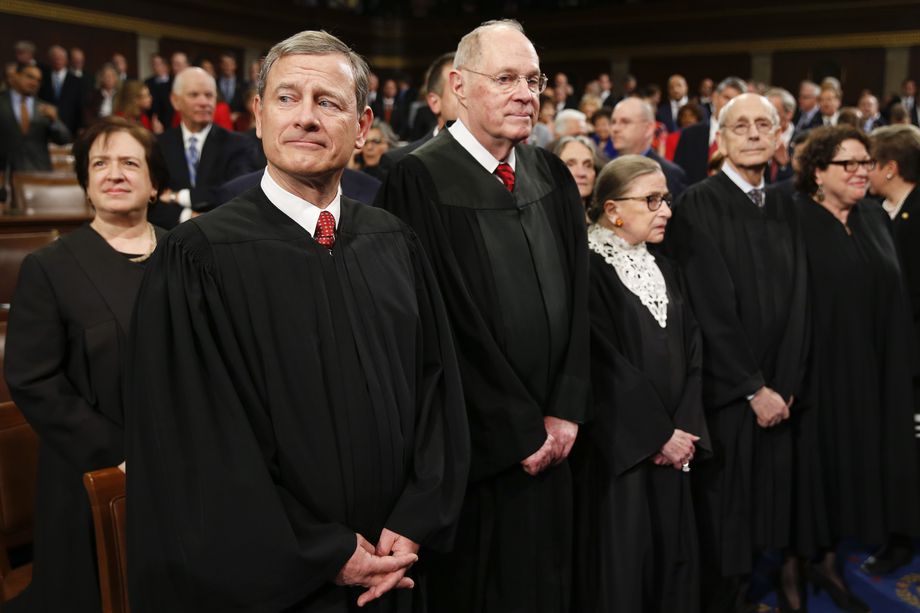
The Supreme Court is set to address a variety of significant cases on Monday, October 21. These include cases involving the Delhi government's appeals related to appointments in the Delhi Electricity Regulatory Commission, as well as pleas filed by figures such as Arvind Kejriwal and Jamiat Ulama-i-Hind. Notable topics to be addressed include defamation proceedings against Prime Minister Narendra Modi and challenges to the Uttar Pradesh Board of Madarsa Education Act. The Court will also consider a plea to remove the words "secular" and "socialist" from the Preamble of the Constitution and to enforce previous orders on firecracker regulations.
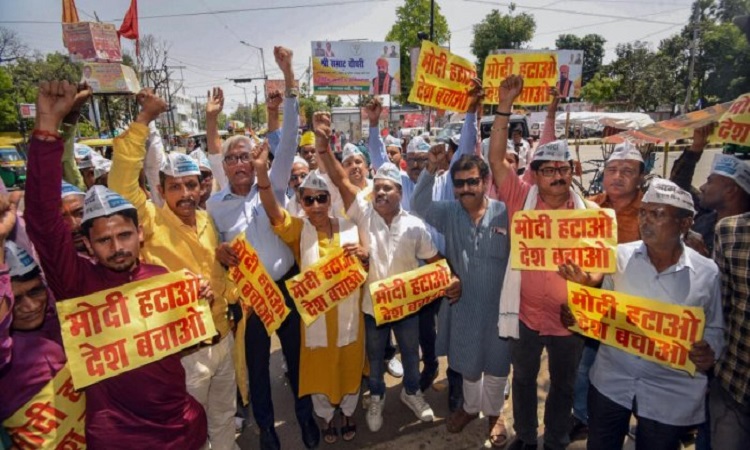
On the occasion of Ambedkar Jayanti, senior AAP leaders called on Delhi residents to vote for their party to save the Constitution. They accused the BJP of planning to abolish reservation for Dalits, tribals, and backward classes if they come to power. The AAP leaders and workers read the Preamble of the Constitution and took an oath to save it. They also spoke about their achievements in Delhi and called out the BJP for its arrest of Jharkhand CM Hemant Soren. Meanwhile, Delhi BJP chief Virendra Sachdeva dismissed the AAP's campaign as a "flop show" and promoted the BJP's own candidate.
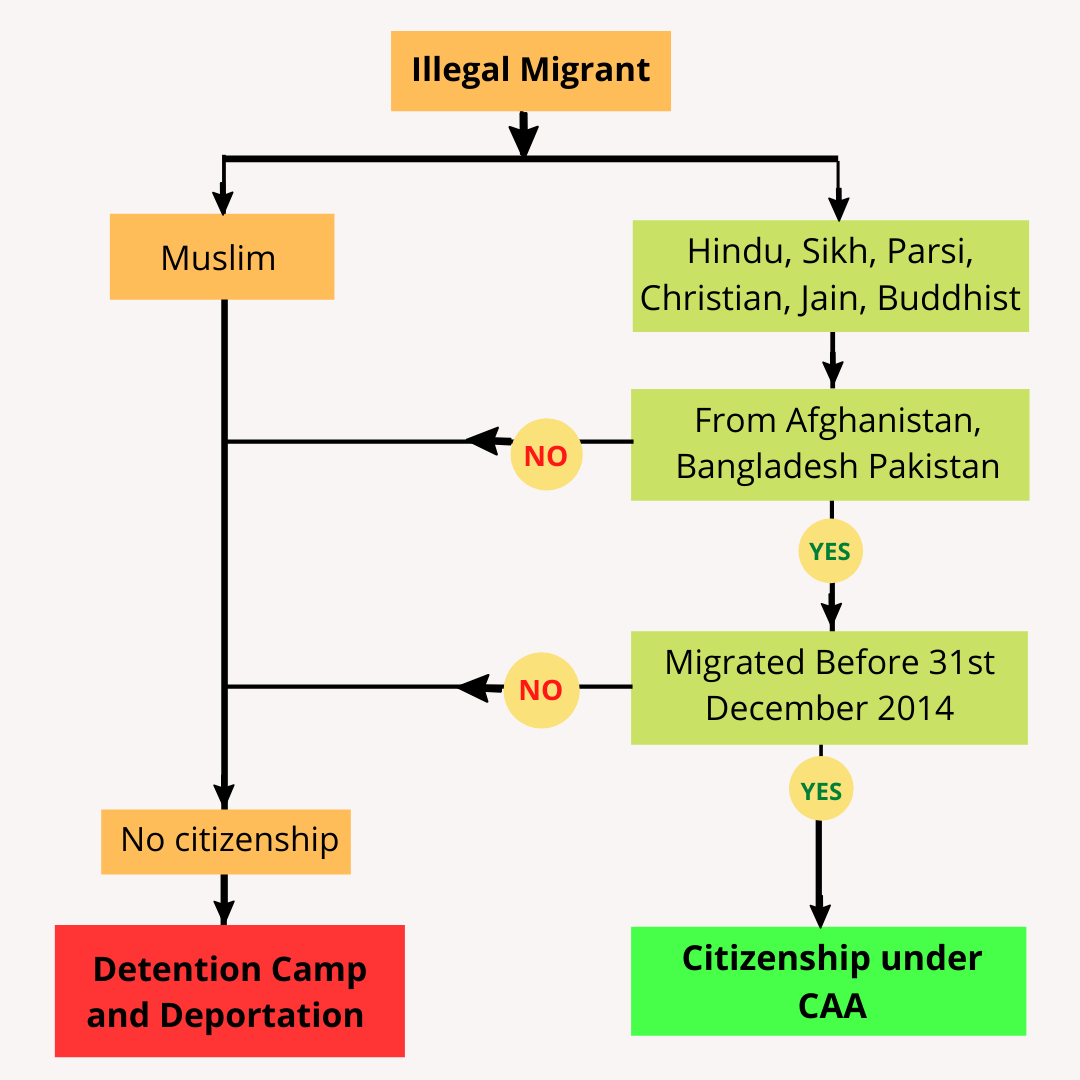
The controversial Citizenship Amendment Act (CAA) has been met with strong criticism from various communities in India. From a Catholic organization calling for schools to stick to the Constitution's preamble instead of enforcing Christian traditions, to the revision of a history textbook that casts doubt on Aryan migration theory, to implications on marginalized communities in Mumbai, the CAA rules have brought to light double standards and discrimination in the Indian government's policies. Recent revelations of political donations to the ruling party only add to the controversy surrounding this hot-button issue.